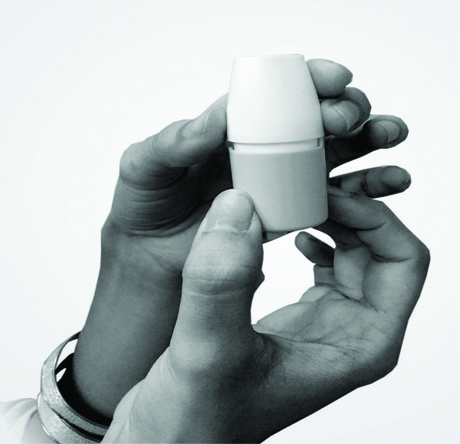Inhaled drug could dramatically reduce maternal deaths
Thursday, 23 March, 2017

Positive results have been announced from a first-in-human study of a new, inhaled form of a medicine that could significantly reduce maternal deaths around the world. The results, from the (MIPS), mean the possibility of a streamlined pathway to registration and earlier access to the drug for women.
Every year, over 300,000 women in low and low-middle income countries die during pregnancy and childbirth. (PPH) is the single largest cause of these deaths.
Oxytocin can help prevent PPH; however, as an injection, oxytocin requires refrigeration and a skilled medical professional to administer it safely. In low and low-middle income countries, one or both of these requirements may not be available.
To address this unmet need, researchers at MIPS, in collaboration with in London, which sponsored the study, have been developing an inhalable, dry-powder form of oxytocin.
At the in Cape Town, South Africa, the results of the first in-human trial of the new formulation were announced.
The study demonstrated, in a small cohort of non-pregnant female volunteers, that the effects inhaled oxytocin has on the body are not meaningfully different from its injected counterpart. This gives confidence that the inhaled form of oxytocin will deliver similar effects in prevention of PPH when given to mothers immediately after giving birth.
Associate Professor Michelle McIntosh, project leader at MIPS, said that this first in-human data offers hope to the many women in resource-constrained settings who do not currently have access to this essential medicine.
“These results show that oxytocin can be delivered similarly via inhalation or injection and therefore we are less likely to be required to conduct the extensive and costly trials needed for an entirely new drug. Instead, we should be able to move forward with trials on a much smaller scale, featuring patients numbering in the hundreds rather than tens of thousands, potentially making the medicine available much sooner,” Associate Professor McIntosh said.
This positive data supports the initiation of clinical studies evaluating inhaled oxytocin when given to women immediately after birth, the time at which oxytocin is routinely administered for prevention of PPH.
Could this strategy mark a turning point in the HIV-cure search?
A team of Australian researchers have repurposed the same mRNA delivery system used in COVID-19...
Key concerns this Sarcoma Awareness Month
July is Sarcoma Awareness Month, and the Australia and New Zealand Sarcoma Association has raised...
Queensland gains private hospital surgery for lymphoedema
Greenslopes Private ���ϳԹ�Ⱥ�� in Brisbane now offers advanced microsurgery for lymphoedema,...





